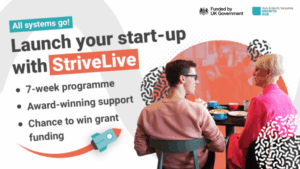
How software automation can help your business
Using software to automate key tasks provides some significant opportunities for businesses to be more efficient, reduce costs, improve accuracy, and get things done more quickly. Automation software can:
- Eliminate repetitive and time-consuming tasks, allowing employees to focus on more valuable activities. Automating manual processes also means businesses can reduce labour costs associated with routine tasks.
- Reduce the risk of human errors that can occur during data entry, calculations, and other repetitive tasks. This can lead to improved accuracy and consistency in processes such as financial reporting. It can also provide real-time data and insights, enabling faster and more informed decision-making.
- Create savings in areas like paper and printing, postage, and manual data entry.
- Support scalability to accommodate business growth. Whether you have 10 customers or 10,000, automation tools can handle increased workloads without a commensurate increase in staffing needs
Below is a selection of some of the specific tasks that can be automated, or where element of automation can support achieving the objectives.

Data management
Automation can improve data management by automatically collecting, organising, and storing data. This means better data accuracy and ability to access data and reporting more quickly and easily, which is crucial for decision-making. Solutions Review has a comprehensive guide to the leading software available, but you should have some background in databases / data management to help inform your selection.
Task scheduling and reminders
There are a range of software tools and apps that can schedule and manage tasks, send reminders, and prioritise work, ensuring that important activities are not overlooked. This is now a common feature of many office software packages, and this guide from TechRadar recommends some of the best, including those from Microsoft and Google.
Marketing and sales
Automating elements of your marketing, particularly in relation to your online channels, can allow you to more easily deliver personalised marketing campaigns, track customer interactions, and nurture leads, helping you to improve conversion rates and customer retention. Zapier have a run-down of some of the top software packages for different sizes and types of business.
Stock or inventory management
Stock or inventory management systems can use automation to help you manage stock levels, contributing to reducing overstocking or understocking, provide up-to-date information on inventory status, and even re-order automatically. Forbes has a list of recommended software providers.
Financial processes
It is getting easier to automate financial processes like bookkeeping, accounts payable, invoicing and accounts receivable, tax compliance, payroll, and expense management. Much well-known financial software includes these features already, such as Quickbooks and Xero. See StartUps for a suggested list of recommended financial software.
Workflow automation
Workflow automation tools can automate entire processes, from initiation to completion, ensuring that tasks are completed in a logical sequence and without manual intervention. Technology Advice has a list of recommended software to help you get started with finding a solution.
Predictive analytics
Predictive analytics can be used to anticipate customer behaviour, market trends, and operational needs, helping your business make better informed decisions. Automation tools can provide valuable insights into operational performance, helping businesses identify bottlenecks, inefficiencies, and areas for improvement. Tech Target recommends some of the best pieces of software, but some training or familiarity with the concepts and processes can be helpful to get the most from this type of software
In summary, automation software offers numerous opportunities for businesses to optimise their processes, reduce costs, and drive growth. By strategically implementing automation in various aspects of their operations, businesses can become more efficient, agile, and competitive in today’s fast-paced business environment.

Learn more
Articles
Kick Off In Business: Fully Funded Opportunity
Online business start-up & self-employment courses funded by York and North Yorkshire Combined Authority’s Adult Skills Fund, providing straightforward, practical information and guidance for anyone who is in the process of setting up a business or simply exploring the idea.
Carbon Literacy Training for SMEs
Curious what Carbon Literacy could do for your organisation? You’ll meet our friendly Carbon Literacy Facilitator, Ali Fisher, and get a taste of how this practical training can help your business cut costs, attract and retain great people, and stand out in bids, tenders and investment conversations.
Strive Live Start-Up Incubator: March
If you are currently running or looking to launch a start-up based in York & North Yorkshire, join this award-winning incubator designed to help grassroots entrepreneurs launch their business. Strive Live blends weekly live online training with regular one-to-one advice and on-demand online learning to make it simple and exciting to start a business. Plus, you could win up to £2,500 in micro grants at the end of the programme.
Events
03rd March 202611:00 am - 1:00 pmFREE
Online Workshops: Digital Marketing Success Series (Intermediate)
Join our Digital Marketing Success Series designed especially for small business owners who want to grow online, even if you don’t consider yourself “tech-savvy.” This weekly workshop series will guide you through the basics of digital marketing and on to more advanced strategies – all at your pace.
Resources
Communications for Small Businesses Series: Webinar Recordings
This webinar series will guide you through the steps needed to embrace communications for your business, in an authentic and impactful way.
Webinar Series: Set Up for Success with Google Business Tools
This series explores the free tools available from Google to help small businesses increase their online presence. Plus, you’ll learn how to leverage Google’s paid advertising platform for scalable growth without feeling like you are just wasting money. Participants will leave feeling confident to start using Google Tools to Improve their visibility, generate leads and make more sales online.
Webinar Recording: PR for Small Businesses
Want to get your business featured in newspapers and magazines in 2026? In this webinar, Jo and Linda explain why you should be prioritising PR – including reaching a new audience (outside your social media bubble), building trust and credibility, and boosting your sales and SEO.







